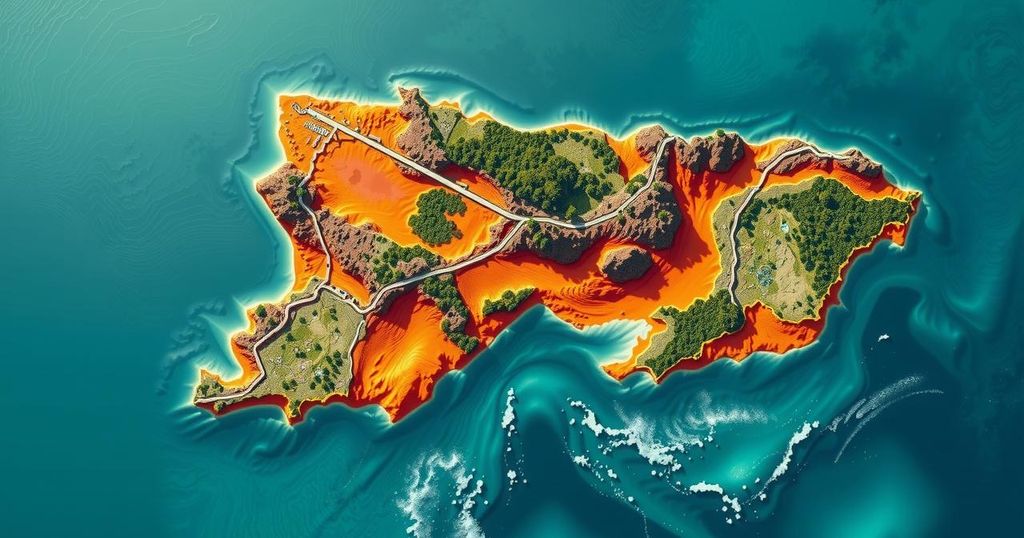Climate change significantly affects Puerto Rico, manifesting in rising temperatures, altered rainfall patterns, and increased storm frequency. The PR Climate Plan outlines these challenges and the need for adaptive measures. Retired engineer Cade Johnson emphasizes the urgency of addressing climate impacts exacerbated by fossil fuel reliance.
The phenomenon of climate change is substantially impacting Puerto Rico, with significant implications for its environment and society. The Department of Natural and Environmental Resources (DRNA) in Puerto Rico released an updated draft report, named the “PR Climate Plan,” which outlines the risks and recommendations concerning climate change. Retired engineer Cade Johnson emphasizes that the reliance on fossil fuels has resulted in a surge of carbon dioxide emissions, contributing to the greenhouse effect that leads to rising temperatures and increasing moisture in the atmosphere.
The latest reports from the United Nations Intergovernmental Panel on Climate Change (IPCC) detail predictions regarding climate impacts and necessary human responses. Puerto Rico is anticipated to experience rising average temperatures, increased frequency and severity of droughts, and variations in rainfall patterns. Furthermore, rising sea levels and more intense storms represent crucial challenges that need to be addressed.
Currently, the average temperature in Puerto Rico is increasing at a rate of approximately 1 degree Celsius every 50 years. However, extreme heat events are occurring with increasing frequency. Additionally, while annual rainfall has decreased in certain areas, others have seen an increase, contributing to an overall trend of less precipitation in the future. Climatologists predict a rise in tropical storms and hurricanes, largely attributed to elevated sea surface temperatures, posing a threat to Puerto Rico’s resilience.
Moreover, the warming of the oceans has resulted in an increased occurrence of tornadoes in the region, highlighting the growing unpredictability of weather patterns in Puerto Rico. This increasingly tumultuous climate underscores the urgency for proactive measures to mitigate and adapt to the effects of climate change. The forthcoming articles will further explore these impacts and discuss how Puerto Rico can adapt to the challenges ahead.
The article addresses the critical issue of climate change in Puerto Rico, highlighting recent findings from the Department of Natural and Environmental Resources (DRNA) and related scientific reports. It underscores the role of human activity, particularly the consumption of fossil fuels, in exacerbating environmental challenges. Given the increasing severity of climate-related events, understanding these dynamics is crucial for developing effective strategies to address the consequences of climate change in Puerto Rico.
In summary, climate change poses significant threats to Puerto Rico, evidenced by rising temperatures, alterations in precipitation patterns, and increased storm intensity. The PR Climate Plan represents an important step toward comprehending and addressing these challenges. As the island faces a future of heightened environmental instability, coordinated action and innovative solutions will be essential for effective adaptation and resilience.
Original Source: newsismybusiness.com






